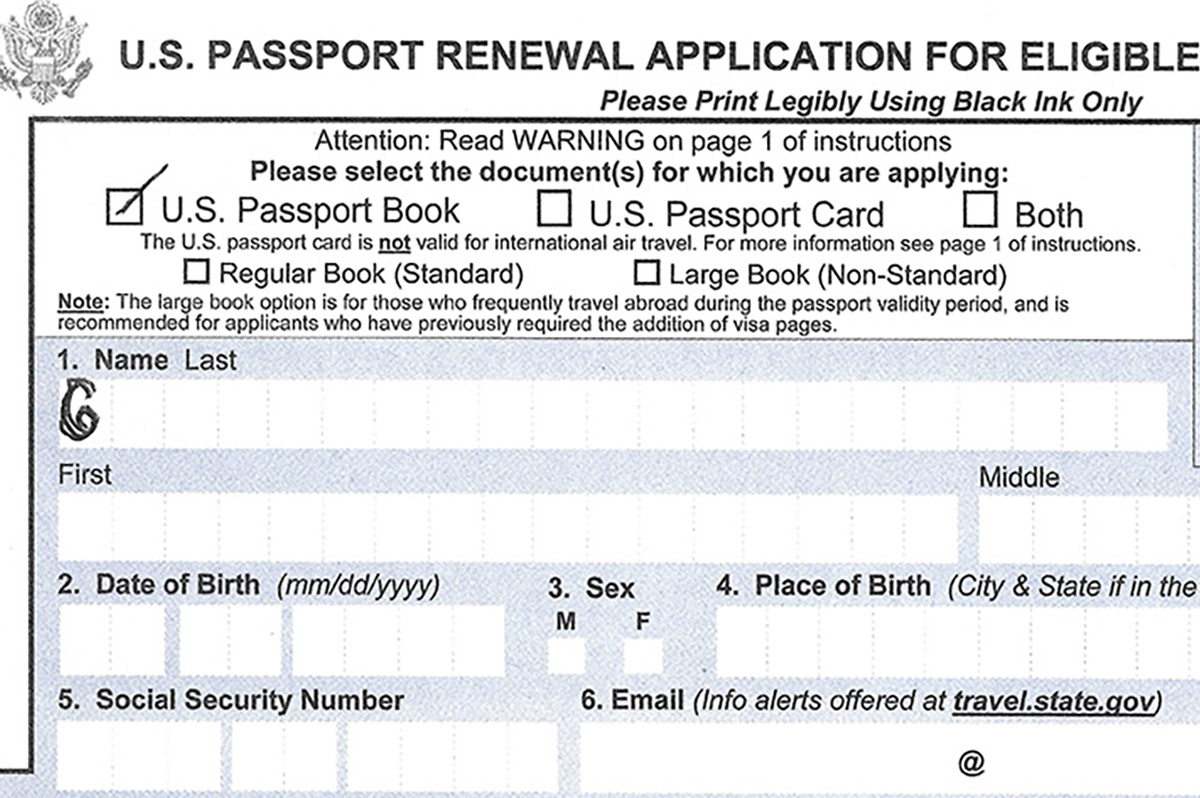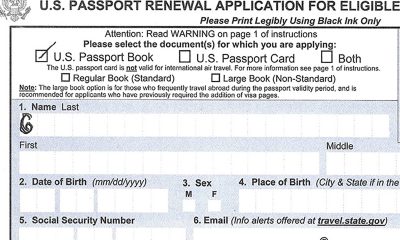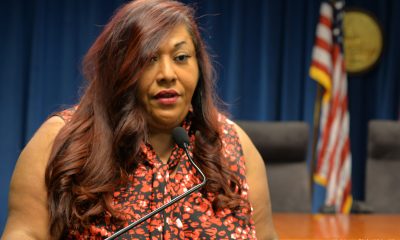National
Gibbs unsure if ‘Don’t Ask’ report will influence military chiefs
White House spokesperson: Legislative action best way to end law


White House Press Secretary Robert Gibbs said he doesn't "want to presume" how the Pentagon "Don't Ask, Don't Tell" report will influence service chiefs.. (Washington Blade photo by Michael Key)
White House Press Secretary Robert Gibbs on Monday said he’s unsure whether the results of the Pentagon study on “Don’t Ask, Don’t Tell” will move the four service chiefs to support an end to the law as he suggested that unanimous support among the military leaders won’t be necessary for moving forward.
Asked by the Washington Blade whether President Obama anticipates that the service chiefs will favor repeal following the completion of the Pentagon report, Gibbs said he doesn’t “want to presume” where they would stand after the study is finished, noting the president hasn’t yet seen it.
“I think the service chiefs as I understand it are meeting with the chairman of the Joint Chiefs and the secretary as we get closer to this report coming out in order to discuss where they are based on that survey,” Gibbs said. “The president has not yet seen that survey, so I don’t want to presume whether based on those results that would change their opinions on it.”
Pressed to clarify whether the intent of the year-long study was to bring the military leaders such as the service chiefs on board with repeal, Gibbs hinted that “whether you have unanimous agreement or not” among the military leaders isn’t necessary to move forward.
“The president has known where people have stood on this policy for as long as he’s supported changing that policy,” Gibbs said. “So, I think it will be important to again view the attitudes and to use those attitudes to craft a pathway to implementing a changed legislative policy.”
Gibbs also implied that the president hasn’t recently spoken to the service chiefs about getting them to support repeal during the lame duck session of Congress as he noted Obama had previously spoken to them on this issue.
“I know the president has spoken previously with the service chiefs on this subject and expect that as this report is finalized and released that he’ll have an opportunity to speak directly with the chair, the vice-chair and the service chiefs as the process moves forward,” Gibbs said.
Obama has said — notably in January during the State of the Union address — that part of his effort in repealing “Don’t Ask, Don’t Tell” is working with the military to make it happen. The Pentagon working group, established by Defense Secretary Robert Gates in February, was seen as part of this process.
The service chiefs have heretofore been against the legislative effort to repeal “Don’t Ask, Don’t Tell.” In May, the service chiefs of the Navy, Army, Air Force and Marine Corps sent a joint letter to Congress urging lawmakers to wait for the Pentagon report — now set for release on Nov. 30 — before taking action.
But in an interview Saturday with the National Journal, Navy Chief of Staff. Adm. Gary Roughead reportedly praised the Pentagon report — and the surveys sent to 400,000 service members that were a component of that study — and said he’s “just trying to put it all in context.”
“I think the survey, without question, was the most expansive survey of the American military that’s ever been undertaken,” Roughead was quoted as saying. “I think the work that has been done is extraordinary.”
The Navy chief reportedly added that he’s “eager to see” where repeal “goes on the Hill.”
The last public statements of the Army and Air Force chiefs have them on the record as wanting to Congress to hold off before pursuing legislative action. Marine Corps Commandant Gen. James Amos last month took on the mantle as head of his service, and he has spoken out against repeal.
A number of U.S. senators have said they’re awaiting testimony from military service chiefs before making a decision on “Don’t Ask, Don’t Tell.” In his defense of the law, Sen. John McCain (R-Ariz.) has emphasized that the service chiefs — in particular Amos — have asked Congress to hold off on legislative action. A spokesperson for Sen. John Ensign (R-Nev.) has recently said the senator is awaiting testimony from the service chiefs before making a decision on the issue.
Also during the news conference, Gibbs counted “Don’t Ask, Don’t Tell” repeal among the legislative items that Obama wants to see happen during the lame duck session of Congress and argued that legislative action is better than having the courts overturn the law. Senate Majority Leader Harry Reid (D-Nev.) has committed to a vote on “Don’t Ask, Don’t Tell” before the year’s end.
“There are issues around ‘Don’t Ask, Don’t Tell’ that the president and, I think, many people believe are best dealt with through the legislative process and not through a legal system,” Gibbs said.
Gibbs maintained that overturning the gay ban through court order is “not likely to provide the Pentagon and others with a pathway” for implementing repeal and said “doing this legislatively” is the best way to end the law.
—————————-
A partial transcript of Gibbs’ remarks on “Don’t Ask, Don’t Tell” follows:
Robert Gibbs [on the legislative agenda for lame duck]: … There are issues around “Don’t Ask, Don’t Tell” that the president and, I think, many people believe are best dealt with through the legislative process and not through a legal system. …
National Public Radio: Has the president asked the Pentagon has the Pentagon to hurry up to Nov. 30 the report — it’s internal report —
Gibbs: I think the original date was Dec. 1. Obviously, the report is being released a day or so early in order to have some informed hearings on the survey and its results. I think those, hearings, if I’m not mistaken, start on the 1st.
But I think it’s important if you look at what others have said particularly — take for instance Secretary Gates — we know we can do this legislatively. The House has done this; the Senate can do this — do this legislatively, which provides an avenue to implement the policy. The court doing this is not likely to provide the Pentagon and others with a pathway for doing this, and I think in order to do this in a way that the president want to see that doing this legislatively is the best way to do this. …
Washington Blade: Robert, back on “Don’t Ask, Don’t Tell,” the service chief of the Navy recently praised the Pentagon report and said he’s eager to see what happens with the Hill with regard to repeal. But the remaining three service chiefs — they’re all on the record as saying they want to wait for the report to come out before Congress takes action. Does the president that once the report comes out, the service chiefs will be on board in favor of repeal?
Robert Gibbs: I don’t — I think the service chiefs as I understand it are meeting with the chairman of the Joint Chiefs and the secretary as we get closer to this report coming out in order to discuss where they are based on that survey. The president has not yet seen that survey, so I don’t want to presume whether based on those results that would change their opinions on it. I think it’s best not to get too far down the road on commenting on that until we chance to personally see the substance.
Blade: But wasn’t that the purpose of the study, though? You’ve said the president has supported repeal since you’ve known him, and the president has said he wants to work with military leaders — in the State of the Union address — he said he wants to work with military leaders to get them on board with repeal. So, what the point of this report if not to get those service chiefs on [board]?
Gibbs: I’m not saying they won’t. I’m just saying — I think the original question you asked me is would that report change their mind. I haven’t seen the report, and the president hasn’t seen that report and neither of us have had an opportunity to talk with the chiefs. That’s not to say that it won’t; that’s not to say that — and quite frankly, that’s not to say whether or not — whether you have unanimous agreement or not that the policy — look, the president is going where people have stood on this policy for as long as he supported changing that policy. So, I think it will be important to again view the attitudes and to use those attitudes to craft a pathway to implementing a changed legislative policy.
That’s what the president has advocated through this process. Again, I can’t — we may have a better sense of that when we get an opportunity to talk to those who have seen the report and get a chance to look at that report ourselves.
Blade: Has the president had conversations directly with the service chiefs to get them in favor of legislative repeal during the lame duck session of Congress?
Gibbs: I know the president has spoken previously with the service chiefs on this subject and expect that as this report is finalized and released that he’ll have an opportunity to speak directly with the chair, the vice-chair and the service chiefs as the process moves forward.
Watch a video of the exchange here (via Think Progress):
Federal Government
RFK Jr.’s HHS report pushes therapy, not medical interventions, for trans youth
‘Discredited junk science’ — GLAAD

A 409-page report released Thursday by the U.S. Department of Health and Human Services challenges the ethics of medical interventions for youth experiencing gender dysphoria, the treatments that are often collectively called gender-affirming care, instead advocating for psychotherapy alone.
The document comes in response to President Donald Trump’s executive order barring the federal government from supporting gender transitions for anyone younger than 19.
“Our duty is to protect our nation’s children — not expose them to unproven and irreversible medical interventions,” National Institutes of Health Director Dr. Jay Bhattacharya said in a statement. “We must follow the gold standard of science, not activist agendas.”
While the report does not constitute clinical guidance, its findings nevertheless conflict with not just the recommendations of LGBTQ advocacy groups but also those issued by organizations with relevant expertise in science and medicine.
The American Medical Association, for instance, notes that “empirical evidence has demonstrated that trans and non-binary gender identities are normal variations of human identity and expression.”
Gender-affirming care for transgender youth under standards widely used in the U.S. includes supportive talk therapy along with — in some but not all cases — puberty blockers or hormone treatment.
“The suggestion that someone’s authentic self and who they are can be ‘changed’ is discredited junk science,” GLAAD President and CEO Sarah Kate Ellis said in a statement. “This so-called guidance is grossly misleading and in direct contrast to the recommendation of every leading health authority in the world. This report amounts to nothing more than forcing the same discredited idea of conversion therapy that ripped families apart and harmed gay, lesbian, and bisexual young people for decades.”
GLAAD further notes that the “government has not released the names of those involved in consulting or authoring this report.”
Janelle Perez, executive director of LPAC, said, “For decades, every major medical association–including the American Medical Association and the American Academy of Pediatrics–have affirmed that medical care is the only safe and effective treatment for transgender youth experiencing gender dysphoria.
“This report is simply promoting conversion therapy by a different name – and the American people know better. We know that conversion therapy isn’t actually therapy – it isolates and harms kids, scapegoats parents, and divides families through blame and rejection. These tactics have been used against gay kids for decades, and now the same people want to use them against transgender youth and their families.
“The end result here will be a devastating denial of essential health care for transgender youth, replaced by a dangerous practice that every major U.S. medical and mental health association agree promotes anxiety, depression, and increased risk of suicidal thoughts and attempts.
“Like being gay or lesbian, being transgender is not a choice, and no amount of pressure can force someone to change who they are. We also know that 98% of people who receive transition-related health care continue to receive that health care throughout their lifetime. Trans health care is health care.”
“Today’s report seeks to erase decades of research and learning, replacing it with propaganda. The claims in today’s report would rip health care away from kids and take decision-making out of the hands of parents,” said Shannon Minter, legal director of NCLR. “It promotes the same kind of conversion therapy long used to shame LGBTQ+ people into hating themselves for being unable to change something they can’t change.”
“Like being gay or lesbian, being transgender is not a choice—it’s rooted in biology and genetics,” Minter said. “No amount or talk or pressure will change that.”
Human Rights Campaign Chief of Staff Jay Brown released a statement: “Trans people are who we are. We’re born this way. And we deserve to live our best lives and have a fair shot and equal opportunity at living a good life.
“This report misrepresents the science that has led all mainstream American medical and mental health professionals to declare healthcare for transgender youth to be best practice and instead follows a script predetermined not by experts but by Sec. Kennedy and anti-equality politicians.”
The White House
Trump nominates Mike Waltz to become next UN ambassador
Former Fla. congressman had been national security advisor

President Donald Trump on Thursday announced he will nominate Mike Waltz to become the next U.S. ambassador to the U.N.
Waltz, a former Florida congressman, had been the national security advisor.
Trump announced the nomination amid reports that Waltz and his deputy, Alex Wong, were going to leave the administration after Waltz in March added a journalist to a Signal chat in which he, Defense Secretary Pete Hegseth, and other officials discussed plans to attack Houthi rebels in Yemen.
“I am pleased to announce that I will be nominating Mike Waltz to be the next United States ambassador to the United Nations,” said Trump in a Truth Social post that announced Waltz’s nomination. “From his time in uniform on the battlefield, in Congress and, as my National Security Advisor, Mike Waltz has worked hard to put our nation’s Interests first. I know he will do the same in his new role.”
Trump said Secretary of State Marco Rubio will serve as interim national security advisor, “while continuing his strong leadership at the State Department.”
“Together, we will continue to fight tirelessly to make America, and the world, safe again,” said Trump.
Trump shortly after his election nominated U.S. Rep. Elise Stefanik (R-N.Y.) to become the next U.S. ambassador to the U.N. Trump in March withdrew her nomination in order to ensure Republicans maintained their narrow majority in the U.S. House of Representatives.
U.S. Federal Courts
Second federal lawsuit filed against White House passport policy
Two of seven plaintiffs live in Md.

Lambda Legal on April 25 filed a federal lawsuit on behalf of seven transgender and nonbinary people who are challenging the Trump-Vance administration’s passport policy.
The lawsuit, which Lambda Legal filed in U.S. District Court for the District of Maryland in Baltimore, alleges the policy that bans the State Department from issuing passports with “X” gender markers “has caused and is causing grave and immediate harm to transgender people like plaintiffs, in violation of their constitutional rights to equal protection.”
Two of the seven plaintiffs — Jill Tran and Peter Poe — live in Maryland. The State Department, Secretary of State Marco Rubio, and the federal government are defendants.
“The discriminatory passport policy exposes transgender U.S. citizens to harassment, abuse, and discrimination, in some cases endangering them abroad or preventing them from traveling, by forcing them to use identification documents that share private information against their wishes,” said Lambda Legal in a press release.
Zander Schlacter, a New York-based textile artist and designer, is the lead plaintiff.
The lawsuit notes he legally changed his name and gender in New York.
Schlacter less than a week before President Donald Trump’s inauguration “sent an expedited application to update his legal name on his passport, using form DS-5504.”
Trump once he took office signed an executive order that banned the State Department from issuing passports with “X” gender markers. The lawsuit notes Schlacter received his new passport in February.
“The passport has his correct legal name, but now has an incorrect sex marker of ‘F’ or ‘female,'” notes the lawsuit. “Mr. Schlacter also received a letter from the State Department notifying him that ‘the date of birth, place of birth, name, or sex was corrected on your passport application,’ with ‘sex’ circled in red. The stated reason was ‘to correct your information to show your biological sex at birth.'”
“I, like many transgender people, experience fear of harassment or violence when moving through public spaces, especially where a photo ID is required,” said Schlacter in the press release that announced the lawsuit. “My safety is further at risk because of my inaccurate passport. I am unwilling to subject myself and my family to the threat of harassment and discrimination at the hands of border officials or anyone who views my passport.”
Former Secretary of State Antony Blinken in June 2021 announced the State Department would begin to issue gender-neutral passports and documents for American citizens who were born overseas.
Dana Zzyym, an intersex U.S. Navy veteran who identifies as nonbinary, in 2015 filed a federal lawsuit against the State Department after it denied their application for a passport with an “X” gender marker. Zzyym in October 2021 received the first gender-neutral American passport.
Lambda Legal represented Zzyym.
The State Department policy took effect on April 11, 2022.
Trump signed his executive order shortly after he took office in January. Germany, Denmark, Finland, and the Netherlands are among the countries that have issued travel advisories for trans and nonbinary people who plan to visit the U.S.
A federal judge in Boston earlier this month issued a preliminary injunction against the executive order. The American Civil Liberties Union filed the lawsuit on behalf of seven trans and nonbinary people.
-

 Books4 days ago
Books4 days agoChronicling disastrous effects of ‘conversion therapy’
-

 U.S. Federal Courts4 days ago
U.S. Federal Courts4 days agoSecond federal lawsuit filed against White House passport policy
-

 Opinions4 days ago
Opinions4 days agoWe must show up to WorldPride 2025 in D.C.
-

 District of Columbia4 days ago
District of Columbia4 days agoRuby Corado sentencing postponed for third time













